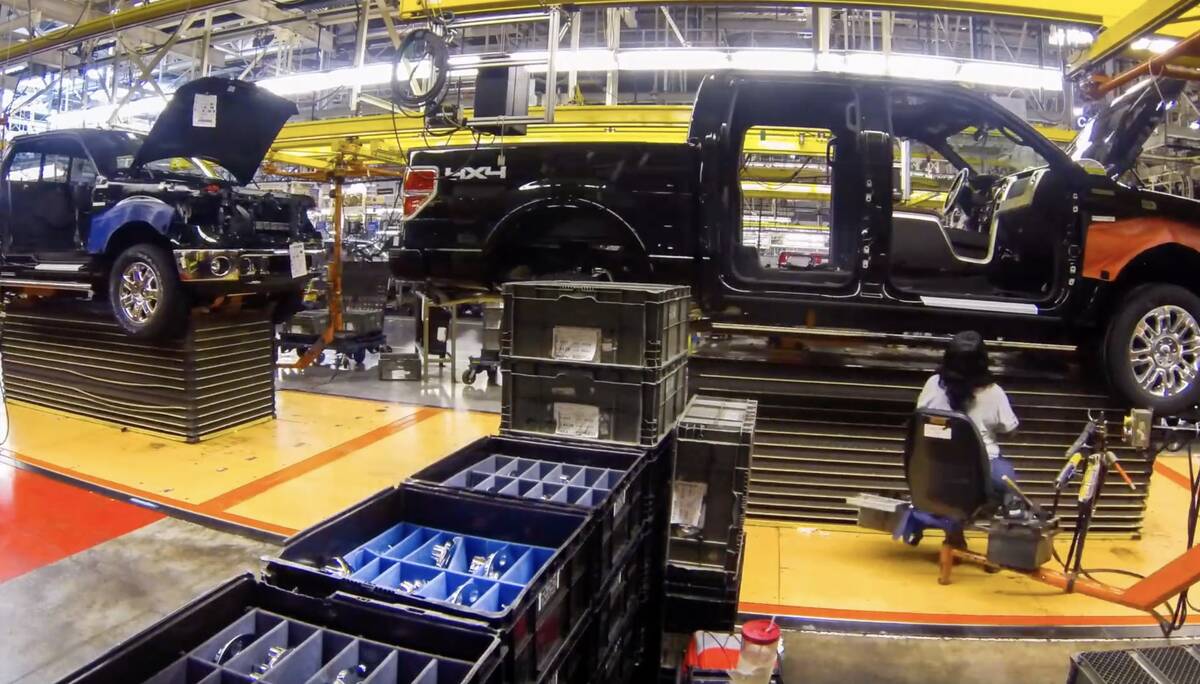With costs constantly fluctuating, it can be hard to feel in control of anything. All you have to do is open your news app or turn on your TV to get overwhelmed by the current political and economic temperature. So, let’s focus on what can be controlled. With many farmers already dreading their next tax year-end, I hope to provide some tools to make your next visit with your accountant a valuable and efficient one.
The driving force
I have worked in multiple accounting offices in my career thus far, and each office uses the same primary driver to determine invoice amounts for clients – time. Some of you may be thinking, “Well, my accountant doesn’t charge me for every phone call or meeting.” While you might be right, the time still likely gets tracked on your file to determine how much your overall bill should be. So, consider this when interacting with your accountant — make sure you are getting value out of your conversations and meetings.
Read Also

Is the technology in our vehicles a help or a hindrance?
Not only does new tech allow people to operate vehicles and farm machinery with fewer skills, it also creates more problems for vehicle users when those systems fail, Scott Garvey writes.
READ MORE: Common pitfalls in farm finances
One of the largest, most time-consuming factors reflected on your bill is messy bookkeeping. This is one area that farmers typically have some control over. For some of you, bookkeeping is a thorn in your side, and the idea of spending more time learning how to improve your processes sounds like a nightmare. That’s OK — you might just pay your accountant more. But, for those of you who want to see your next accounting bill go down, it might require some effort on your end to understand what improvements need to be made.
The best way to achieve this is by thoroughly reviewing and understanding the adjusting journal entries your accountant has made to your records. If you are unsure of why amounts were adjusted, it is likely that the same error will be made again next year, costing you a second time for the same mistake. It may not be realistic to eliminate all adjustments, as some are a result of complex calculations, such as your tax amounts. However, as a rule, the fewer the adjusting entries, the lower your overall bill is likely to be.
Make the most out of your meetings
When dealing with the same accountant for years on end, annual meetings can become somewhat routine — lacking in the value they once had. While more time gets consumed “catching up” with your advisors, it can feel like significant time was spent sitting in a boardroom with little or no insight gained. So, here is what you can do to make sure you are paying for valuable time with your accountant:
Take some time to reflect on the prior year’s operations in advance. This time of reflection can add a lot of great discussion to your meeting. For example, consider asking for a copy of your financial statements prior to the meeting so that you can go through it in detail ahead of time. Even if you don’t understand every detail of your financial statements, reviewing them first could highlight areas worth discussing.
Come prepared with questions. I have had meetings with individuals who come with pages of questions and it usually adds a lot of valuable insight to both parties. It helps guide the conversation as well as provides your accountant with a deeper understanding of what is important to you and your business. This understanding can ensure your accountant is considering your values and long-term goals throughout the year. As rules and regulations are constantly changing, if your accountant knows what your goals and concerns are, it’s easier for them to strategize on your behalf as new tax rules enter the arena.
Less can be more
Logically speaking, bringing your files to your accountant should make things a lot easier for them, right? Wrong. While this might be a point of convenience for you, you are likely paying for it.
I have had clients bring in what feels like the entirety of every record in their office. Every invoice, every receipt, for the entire year. Yes, this means that if your accountant needs to see a bill of sale for a new combine you purchased in the year, they can just go get it from your mobile office. But this also means you are spending money for your accountant to look through your records to try and find it. Not every farm has the same filing system as you. And nobody knows yours better — making you the most efficient at finding what’s needed.
So, give your accountant only what they need. It may take some time to understand what it is that they need and why but having a discussion with your accountant the next time you meet with them could help highlight what “typical” records are required for your accountant.
Hiring the right accountant
While this may not be a required step for some of you, I have had many conversations with farmers who are not satisfied with their current advisors. Some spend years dissatisfied with the same accountant because it requires effort to make a change.
Some might argue that there is a benefit to keeping the same accountant because they understand your farm history. While this may be true in some cases, if your current accountant is not meeting your needs, sometimes a fresh pair of professional eyes can make a significant impact on the profitability of your business.
Finding the right advisor for your needs is critical. So, if you have been thinking about making a change, here is your permission to shop around for a new accountant.
Across the board, professional fees keep rising with inflation and the demand on accountants continues to increase as fewer individuals enter the industry – a recipe for larger bills for everyone.
By reducing your adjusting journal entries, coming prepared to your meetings, cutting out the excess information and ensuring you are working with the right accountant, you might just have a fighting chance at keeping more money in your jeans while still gaining valuable insight from your advisors.















